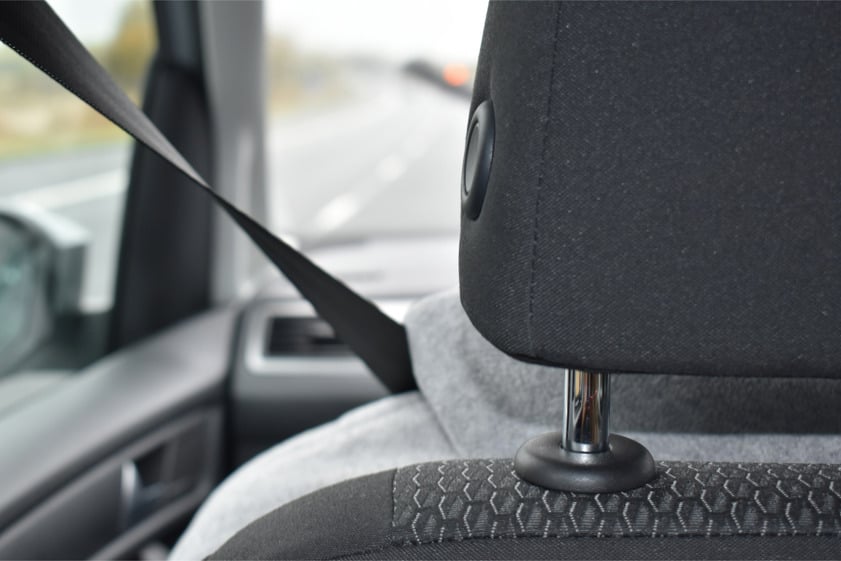
Explore the fascinating evolution of car safety features, tracing the path from traditional seatbelts to the cutting-edge AI technologies now leading the charge towards safer driving experiences in the UK.
The UK has been at the forefront of pioneering car safety features, evolving from simple seatbelts to the sophisticated artificial intelligence systems we're starting to see today. This blog will take you on a thrilling ride through time, exploring how car safety features have transformed, significantly reducing risks and saving lives.
The journey of car safety features begins with a simple yet revolutionary invention: the seatbelt. Introduced in the UK in the 1960s, the seatbelt was the first step towards acknowledging and addressing the need for in-car safety. Initially met with scepticism, it wasn't until 1983 that seatbelt usage became mandatory for drivers and front-seat passengers in the UK, a move that has saved countless lives. The effectiveness of seatbelts in preventing fatalities and serious injuries in accidents is undeniable, serving as a catalyst for the development of more advanced safety features.
As technology advanced, so did the sophistication of safety features within vehicles. The UK saw the introduction of passive safety features designed to protect occupants without any action required on their part. Airbags, crumple zones, and side-impact bars became standard, significantly enhancing protection in the event of a collision.
Active safety features also made their mark, utilizing technology to prevent accidents before they happen. Anti-lock braking systems (ABS), electronic stability control (ESC), and traction control are just a few examples of how vehicles began to incorporate systems aimed at assisting drivers in maintaining control of their cars under challenging conditions.
The 21st century brought with it a digital revolution, reshaping the landscape of car safety features. Advanced Driver-Assistance Systems (ADAS) began to emerge, employing a combination of sensors, cameras, and radar technology to provide a layer of intelligence to vehicle safety. Features like lane-keeping assistance, adaptive cruise control, and automatic emergency braking became more common, showcasing the potential of integrating digital technology into car safety mechanisms.
The latest chapter in the evolution of car safety features is being written by artificial intelligence (AI). AI is transforming the automotive industry by enabling vehicles to analyse data in real time, make decisions, and learn from experiences. In the UK, AI-driven safety features are becoming increasingly prevalent, with autonomous emergency braking systems that can detect pedestrians, cyclists, and other vehicles and take action to avoid collisions.
Moreover, AI is the backbone of autonomous vehicles, which promise to revolutionize road safety by reducing human error, the leading cause of accidents. The UK is actively participating in the testing and development of self-driving cars, setting the stage for what could be the future of transportation.
The evolution of car safety features from seatbelts to AI demonstrates a remarkable journey of innovation and commitment to saving lives. With each technological advance, we move closer to a future where road accidents may become increasingly rare. However, as we navigate this future, it's crucial to continue prioritizing safety, ensuring that technology serves to enhance, not replace, human judgement and responsibility on the road.
The integration of AI into car safety features offers exciting possibilities but also presents new challenges. Ethical considerations, cybersecurity, and the need for robust testing are just a few of the issues that need to be addressed as we embrace AI's role in creating safer driving environments.
When did seatbelts become mandatory in the UK?
Seatbelts became mandatory for drivers and front-seat passengers in the UK in 1983.
What are Advanced Driver-Assistance Systems (ADAS)?
ADAS are systems that employ a combination of sensors, cameras, and radar technology to assist with driving and parking functions, aiming to increase safety for everyone on the road.
How does AI improve car safety?
AI improves car safety by analysing data in real time, predicting potential hazards, and taking action to prevent accidents, thereby reducing the reliance on human intervention and decreasing the chances of human error.
What challenges does the integration of AI into car safety present?
The integration of AI into car safety presents challenges, including ethical considerations, the need for cybersecurity measures to protect against hacking, and ensuring that these systems are rigorously tested and reliable.
From the introduction of seatbelts to the advent of AI, the evolution of car safety features reflects a relentless pursuit of innovation in the service of saving lives. As we look to the future, it's clear that the journey is far from over. The ongoing development of AI and other technologies holds the promise of even safer roads, but it also requires us to navigate the complexities of integrating these technologies responsibly.
The UK's role in pioneering and adopting these advancements positions it as a leader in the quest for safer roads. As we continue on this journey, the focus must always remain on the ultimate goal: ensuring that everyone arrives safely at their destination.
For more information, why not check out our UK Road Safety Report blog? We also produce a range of weekly blogs on various topics, which can be found in the blog section of our website.
Nationwide Vehicle Contracts are one of the UK's leading car leasing brokers and offers a range of leasing deals to suit every need. To find out more, check out our comprehensive car leasing guides or call one of our experts on 0345 811 9595.
Originally posted: 27th March 2024

